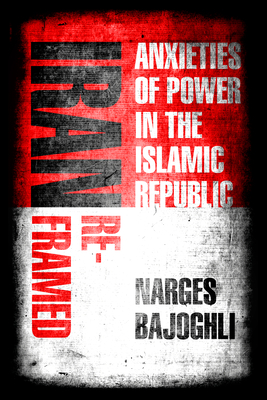Expedite your nonfiction book discovery process with Readara interviews, summaries and recommendations, Broaden your knowledge and gain insights from leading experts and scholars
In-depth, hour-long interviews with notable nonfiction authors, Gain new perspectives and ideas from the writer’s expertise and research, Valuable resource for readers and researchers
Optimize your book discovery process, Four-to eight-page summaries prepared by subject matter experts, Quickly review the book’s central messages and range of content
Books are handpicked covering a wide range of important categories and topics, Selected authors are subject experts, field professionals, or distinguished academics
Our editorial team includes books offering insights, unique views and researched-narratives in categories, Trade shows and book fairs, Book signings and in person author talks,Webinars and online events
Connect with editors and designers,Discover PR & marketing services providers, Source printers and related service providers

Iran Reframed: Anxieties of Power in the Islamic Republic
History > Middle East - Iran
- Stanford University Press
- Paperback
- 9781503610293
- 8.4 X 5.5 X 0.6 inches
- 0.55 pounds
- History > Middle East - Iran
- (Single Author) Asian American
- English
Readara.com
Book Description
An inside look at what it means to be pro-regime in Iran, and the debates around the future of the Islamic Republic.
More than half of Iran's citizens were not alive at the time of the 1979 Revolution. Now entering its fifth decade in power, the Iranian regime faces the paradox of any successful revolution: how to transmit the commitments of its political project to the next generation. New media ventures supported by the Islamic Republic attempt to win the hearts and minds of younger Iranians. Yet members of this new generation--whether dissidents or fundamentalists--are increasingly skeptical of these efforts.
Iran Reframed offers unprecedented access to those who wield power in Iran as they debate and define the future of the Republic. Over ten years, Narges Bajoghli met with men in Iran's Revolutionary Guard, Ansar Hezbollah, and Basij paramilitary organizations to investigate how their media producers developed strategies to court Iranian youth. Readers come to know these men--what the regime means to them and their anxieties about the future of their revolutionary project. Contestation over how to define the regime underlies all their efforts to communicate with the public. This book offers a multilayered story about what it means to be pro-regime in the Islamic Republic, challenging everything we think we know about Iran and revolution.
Author Bio
Narges Bajoghli (pronounced: Nar-guess Baa-jogh-lee) is Assistant Professor of Middle East Studies at the School of Advanced International Studies (SAIS), Johns Hopkins University. She is an award-winning anthropologist, scholar, and writer.
Trained as a political anthropologist, media anthropologist, and documentary filmmaker, Professor Bajoghli's academic research is at the intersections of media and power in Iran and the United States. Her first project focused on regime cultural producers in Iran, and was based on ethnographic research with Basij, Ansar-e Hezbollah, and Revolutionary Guard media producers. The resulting book, Iran Reframed: Anxieties of Power in the Islamic Republic (Stanford University Press 2019) was awarded the 2020 Margaret Mead Award (American Anthropological Association & Society for Applied Anthropology); 2020 Choice Award for Outstanding Academic Title (American Library Association); Silver Medal in 2021 Independent Publisher Book Awards for Current Events (Political/Economic, Foreign Affairs).
Professor Bajoghli’s research has been supported by grants and fellowships from the Social Science Research Council, the National Science Foundation (awarded/declined), The Wenner Gren Foundation for Anthropological Research, the American Institute of Iranian Studies, Johns Hopkins University, New York University, and Brown University.
Professor Bajoghli received her PhD in socio-cultural anthropology from New York University, where her dissertation was awarded the Dean's Outstanding Dissertation Award in the Social Sciences. She was also trained as a documentary filmmaker in NYU's Culture and Media Program.
Professor Bajoghli is currently working on three new research projects. At SAIS Johns Hopkins, she teaches classes on media, contemporary Iranian society, and ethnographic research methods to masters and PhD students. She is also an organizer of the Rethinking Iran Initiative at SAIS, which includes a series of public events and attendant research projects.
In addition to her academic writing, Professor Bajoghli has also written for such publications as The New York Times, The New York Times Magazine, Foreign Affairs, The Guardian, Foreign Policy, and Jacobin. She has also appeared as a guest commentator on Iranian politics on CNN, DemocracyNow!, NPR, BBC WorldService, BBC NewsHour, and PBS NewsHour as well as in Spanish on radio across Latin America.
Outside of academia, Professor Bajoghli has created non-profit organizations, was a community organizer, and has crated cultural programming and exchanges in the United States, Iran, and Cuba for two decades.
Research Interests
Regions
Iran
Topics
Anthropology
Source: Johns Hopkins University
Videos
No Videos
Community reviews
No Community reviews

